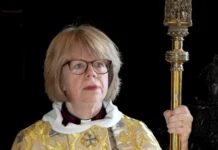Mongu, Western Province – 28th to 29th October 2020 — Over 35 Religious Leaders from the seven church mother bodies (Evangelical Fellowship of Zambia – EFZ, Independent Churches of Zambia – ICOZ, Islamic Supreme Council of Zambia – ISCZ, Council of Churches in Zambia – CCZ, Seventh Day Adventist Church – SDA, New Apostolic Church – NAC and Zambia Conference of Catholic Bishops – ZCCB) in Western Province, Zambia pledged to support the country’s goal to eliminate malaria through advocacy and resource mobilization.
During the two-day meeting held in Mongu District, faith leaders and government officials acknowledged the need for partnership to successfully eliminate malaria: government officials called upon faith leaders to shape community behaviour, and faith leaders called upon government officials to allocate adequate resources and show political will.
The Western Province Permanent Secretary (PS) Danny Bukali said the Government, through the Ministry of Health and the End Malaria Council (EMC), had rolled out a number of malaria programmes in Western Province, and that there is a great need for religious leaders to get involved in those programmes if malaria elimination is to be achieved. Clerics can influence their church members’ behaviours so they remain healthy, explained Bukali. Therefore, it is important for clerics to collaborate with the Government for the joint effort of malaria elimination, he said.
Bukali said the Government was already working hard to eliminate malaria cases in all parts of the country.
‘’Malaria has been known to be one of the major diseases that cause more deaths in Zambia. For this reason, the Government under the stewardship of His Excellency President Edgar Lungu is working with all stakeholders and other cooperating partners to eliminate malaria,’’ he said.
Recognizing the important advocacy voice of religious leaders, Bukali already committed to upholding an open-door policy for his office and the office of the Provincial Minister in order to engage religious leaders around matters that affect the community and most importantly health.Religious Leaders Push to End Malaria in Western Province, ZambiaDuring the two-day meeting held in Mongu District, over 35 Religious Leaders from the seven church mother bodies in Western Province, Zambia pledged to support the country’s goal to eliminate malaria through advocacy and resource mobilization. The meeting was coordinated by the FLAME initiative, which works to catalyze and strengthen interfaith coalitions of religious leaders for malaria advocacy, with support from the J.C. Flowers Foundation. Read more.
Western Province Health Director Dr. Francis Liywali said malaria was a preventable and curable disease, and there is a need for the people in communities to be proactive in taking preventative measures. Malaria is accounting for a number of maternal mortalities in some districts, explained Dr. Liywali. Religious leader involvement in encouraging pregnant women to seek medical treatment could address this issue.
End Malaria Council member, Bishop David Njovu of the Anglican Diocese of Lusaka, said the council will continue working with the Government in sensitizing religious leaders on how to involve themselves in Malaria Elimination programmes.
He said religious leaders have critical roles and a responsibility to help people prevent and end malaria cases in their respective communities, and that this would have a rippling effect across the entire nation. In addition, Bishop Njovu said religious leaders need to advocate for policies that strengthen Zambia’s response to malaria. “We are here to strengthen the abilities of all religious leaders to advocate for malaria elimination so that malaria can be eliminated from Zambia,” he said.
Rev. Victoria Ilyamutu from Wesleyan Pilgrim Church in Mongu thanked the Ministry of Health and facilitators for their initiative in bringing different religious groups in Western Province together. She pledged that malaria elimination was possible if coalition leaders continue to work together and she urged all leaders to rally behind and advocate for malaria elimination with government leaders and community members. “As a faith leader, the role that I am going to play in church and society will be different,” she said.
The meeting was coordinated by the FLAME initiative, which works to catalyze and strengthen interfaith coalitions of religious leaders for malaria advocacy, with support from the J.C. Flowers Foundation.



